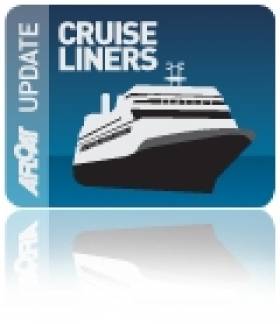Displaying items by tag: Lpndonderry Port and Harbour Commissioners
Cruise Liners Line-Up for Foyle
#CRUISE LINERS-Aside the main ports where most cruise ships visit while touring this island, Londonderry would be a less frequent destination, as such vessels only began visiting the north-west port since 1995, writes Jehan Ashmore.
Some of the leading operators though have called over the years called to the port, they are: Crystal Cruises, Cunard Line, Residensea, Seabourn and Silverseas.
This year's line-up will see eight scheduled calls starting in May with the 446 passenger Quest for Adventure (for more click HERE) built in 1981 and operated by Saga Cruises. A younger near-sister Astor built in 1987 is also due to call in August.
Below is a list of the cruise callers and dates.
Quest for Adventure 9 May
Marco Polo 14 July
Prinsendam 16 July
Astor 11 August
Clipper Odyssey 18 August
Princess Daphne 30 August
Albatross 12 September
Ocean Countess 15 September
The vessels will use various berths dependent upon size within the port which is run by the Londonderry Port and Harbour Commissioners. The facilities are at the city quays, Lisahally or require anchorage off Greencastle in Lough Foyle.
























































